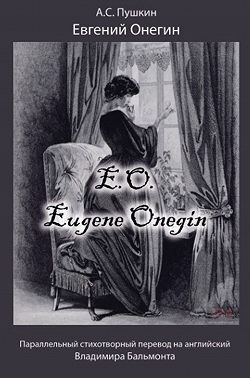(полуПодборка)
В гениальном романе Пушкина содержится столько упоминаний о чтении, о книгах, и, как будет видно ниже, даже о рецензиях и цитатах, что невольно кажется, что «Евгений Онегин» - произведение о сайте «LiveLib» и его пользователях. Захотелось разобраться в литературных предпочтениях героев романа и влиянии чтения на формирование личности. В цитаты из текста романа вставляю прямые ссылки на книги, находящиеся в базе сайта ЛЛ. Каждый может посмотреть, популярны ли у нынешних пользователей сайта книги, которые читали герои романа «Евгений Онегин» :).
Сам Пушкин – не только автор, но и частенько появляющийся в романе герой, своих книжных пристрастий не скрывает и упоминает их в романе неоднократно. Приведу лишь одну цитату – широко известную:
«В те дни, когда в садах Лицея
Я безмятежно расцветал,
Читал охотно Апулея ,
А Цицерона не читал...»
Онегина Пушкин характеризует, как книголюба (и активного пользователя ЛЛ, если бы наш сайт тогда существовал). Евгений запросто мог бы открыть темы о Ювенале на Форуме в разделах «Авторы», «Книги», «Поболтать», а о паре рецензий Евгения (отрицательных - на Гомера и Феокрита) явно сказано в романе:
«Он знал довольно по-латыни,
Чтоб эпиграфы разбирать,
Потолковать об Ювенале ,
В конце письма поставить vale,
Да помнил, хоть не без греха,
Из Энеиды два стиха.»Бранил Гомера , Феокрита ;
Зато читал Адама Смита
{где ж еще он бранил бы, как не в Рецензиях?}
Вернемся позже к Онегину (он окажется «тем еще читателем» - «Постоянным читателем» и даже в определенном смысле – «Любимым Библиотекарем»), а сейчас рассмотрим, какие книги влияли на Ленского и Татьяну.
Для подтверждения высказываемых положений требуется привести много цитат, поэтому остальную часть я убираю под кат:
Сосед Евгения:
«По имени Владимир Ленской,
С душою прямо геттингенской,
Красавец, в полном цвете лет,
Поклонник Канта и поэт.»
Владимир читал Гамлета , это следует из его слов на могиле соседа – Дмитрия Ларина:
«Рооr Yorick! — молвил он уныло. —
Он на руках меня держал.»
Очевидно, что Ленский читал балладу « Светлана » Жуковского:
«Скажи: которая Татьяна?»
— Да та, которая, грустна
И молчалива, как Светлана,
Вошла и села у окна. —»
Последнюю книгу (Шиллера) Ленский безуспешно пытается читать в ночь перед дуэлью. Недочитал...
Читательская характеристика Татьяны Лариной, вероятно, обычна для пользовательниц ЛЛ:
«Ей рано нравились романы;
Они ей заменяли всё;
Она влюблялася в обманы
И Ричардсона и Руссо »
После первой встречи с Онегиным Татьяна читает книги, в которых:
«Любовник Юлии Вольмар ,
Малек-Адель и де Линар ,
И Вертер , мученик мятежный,
И бесподобный Грандисон ,
Который нам наводит сон, —
Все для мечтательницы нежной
В единый образ облеклись,
В одном Онегине слились.Воображаясь героиней?
Своих возлюбленных творцов,
Кларисой , Юлией , Дельфиной ,
Татьяна в тишине лесов
Одна с опасной книгой бродит»
(Дельфина - героиня одноименного романа Жермены де Сталь, Малек-Адель — герой романа М. Коттен «Матильда, или Воспоминания из времен крестовых походов»)
Чуть позже:
«Британской музы небылицы
Тревожат сон отроковицы,
И стал теперь ее кумир
Или задумчивый Вампир ,
Или Мельмот , бродяга мрачный,
Иль Вечный жид , или Корсар ,
Или таинственный Сбогар »
А вот – мнение писателя (и, э-э, переводчика) о тогдашнем российском читателе. Не очень лестное мнение...
«Я должен буду, без сомненья,
Письмо Татьяны перевесть.
Она по-русски плохо знала,
Журналов наших не читала,
И выражалася с трудом
На языке своем родном,
Итак, писала по-французски…»
Книга упоминается после страшного сна Татьяны:
«... сестры не замечая,
В постеле с книгою лежит,
За листом лист перебирая,
И ничего не говорит.
Хоть не являла книга эта
Ни сладких вымыслов поэта,
Ни мудрых истин, ни картин,
Но ни Виргилий , ни Расин ,
Ни Скотт , ни Байрон , ни Сенека ,
Ни даже Дамских Мод Журнал
Так никого не занимал:
То был, друзья, Мартын Задека ,
Глава халдейских мудрецов,
Гадатель, толкователь снов».
После дуэли и отъезда Онегина, Татьяна натыкается на его библиотеку, подтверждающую, что Евгений был разборчивым и вдумчивым читателем:
«Хотя мы знаем, что Евгений
Издавна чтенье разлюбил,
Однако ж несколько творений
Он из опалы исключил:
Певца Гяура и Жуана
Да с ним еще два-три романа,
В которых отразился век
И современный человек.Хранили многие страницы
Отметку резкую ногтей; {цитаты, цитаты, цитаты}
Глаза внимательной девицы
Устремлены на них живей. {плюсики, плюсики за цитаты}
Татьяна видит с трепетаньем,
Какою мыслью, замечаньем
Бывал Онегин поражен,
В чем молча соглашался он.
На их полях она встречает
Черты его карандаша.
Везде Онегина душа
Себя невольно выражает
То кратким словом, то крестом,
То вопросительным крючком».
Знакомство (подробное и тщательное) с библиотекой Евгения - сейчас бы мы назвали это знакомством с читательским профилем пользователя - последнее упоминание в романе об общении Татьяны с книгами.
Онегин же после встречи с Татьяной в Москве:
«Стал вновь читать он без разбора.
Прочел он Гиббона , Руссо ,
Манзони , Гердера , Шамфора ,
Madame de Staёl , Биша , Тиссо ,
Прочел скептического Беля ,
Прочел творенья Фонтенеля ,
Прочел из наших кой-кого,
Не отвергая ничего:
И альманахи , и журналы ,
Где поученья нам твердят,
Где нынче так меня бранят,
А где такие мадригалы
Себе встречал я иногда:
Е sempre bene, господа».
(Биша - основатель танатологии, следовательно, Онегин к этому времени стал задумываться о смерти)
Подведем печальный итог: поэт и философ Ленский убит, Татьяна, читательница Татьяна, выйдя замуж, похоже - перестала читать, а Евгений, потерпев фиаско с Татьяной, наоборот, превратился в заядлого читателя – потенциального пользователя нашего сайта. Благо, он зарегистрировался в самом начале романа (значок «Старожил»), занимая высокое место в рейтинге активности, а к концу романа представлен еще и как «Самый начитанный». Если бы он, не будучи обременен семейными заботами, продолжил писать рецензии на прочитанное, то статус Гуру ему был бы обеспечен.


